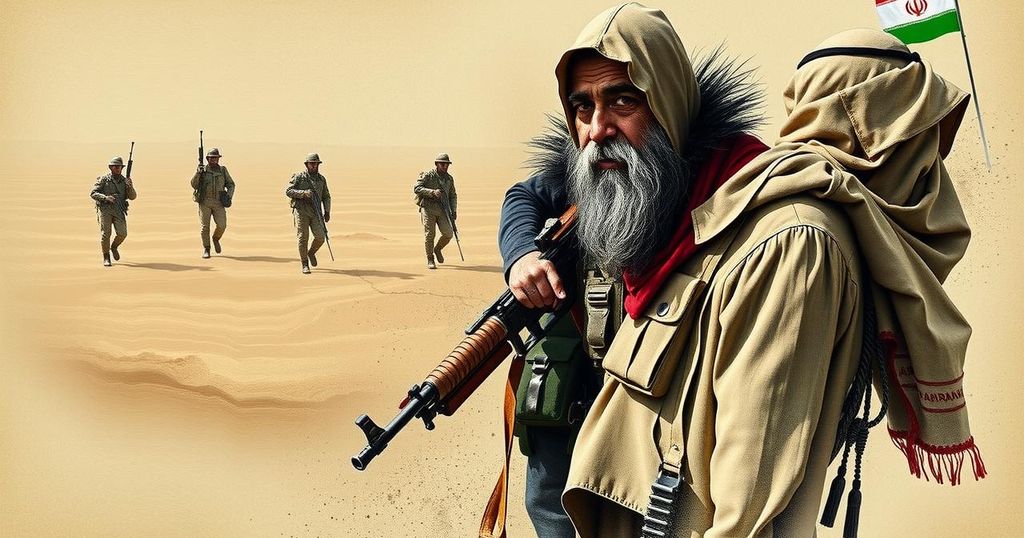Global news
AIRSTRIKES, ANTÓNIO GUTERRES, ANTONIO GUTERRES, ASIA, BENJAMIN NETANYAHU, CONFLICT, EUROPE, HAMAS, HEZBOLLAH, HODEIDA, HORN OF AFRICA, HUMANITARIAN CRISIS, IRAN, ISMAIL HANIYEH, ISRAEL KATZ, MILITARY OPERATIONS, RETALIATION, SANA, TEDROS ADHANOM GHEBREYESUS, UN, UNITED KINGDOM, UNITED NATIONS
Fatima Khan
0 Comments
The Houthis’ Role in Iran’s Strategy Against Israel
Israel’s military operations against the Houthi group in Yemen underscore the shifting dynamics within Iran’s axis of resistance against Israel. With strengthened military capabilities and increased cooperation with other Iranian proxies, the Houthis are emerging as key players in regional confrontations. The ongoing conflict has significant implications for maritime security and international trade, as pressures mount on security arrangements in the Red Sea.
The recent escalation of Israeli military operations in Yemen highlights the growing role of the Houthi group (Ansar Allah) within Iran’s broader strategy against Israel. Following airstrikes in several locations, including Yemen’s capital, Sana’a, Israel has intensified its campaign against the Houthis, whom it regards as a significant Iranian proxy. Israeli officials, including Prime Minister Benjamin Netanyahu, have publicly expressed their determination to dismantle what they perceive as Iran’s “axis of evil.” These developments come against a backdrop of longstanding conflict between the Houthis and regional powers, particularly Saudi Arabia and the UAE.
In the last year, the Houthis have capitalized on regional shifts and effectively solidified their control over northern Yemen while simultaneously extending their reach into the Red Sea. As the conflict continues, the Houthis have aligned their military objectives with those of other Iranian-backed groups, notably the Popular Mobilization Forces in Iraq, thereby enhancing their military profile and operational capabilities. Their recent missile and drone activities against Israel reflect a strategic pivot that connects them directly with Iran’s interests in destabilizing the region and confronting Israeli actions.
Operationally, the Houthis have utilized Western concerns over maritime security and energy infrastructure to assert their influence in shipping lanes crucial for global trade. Meanwhile, the rising tensions have elicited responses from international coalitions, including military operations aimed at containing the Houthi threat. Henceforth, the Houthis are not merely a local player; they are positioned as a central actor in Iran’s strategy to challenge Israeli dominance in the region.
The article provides a detailed analysis of the geopolitical intricacies surrounding the Houthis in Yemen, especially in relation to their connections with Iran and ongoing hostilities with Israel. Historically, the Houthis have fought a protracted civil war supported by Iranian military resources, which has enabled them to establish significant footholds in Yemen. The recent military engagements signal a shift in focus from traditional conflicts to a more pronounced confrontation with Israel, reflecting the Houthis’ evolving role within Iran’s axis of resistance. This context is vital to understanding the broader implications of the conflict in Yemen and its impact on international trade, particularly through the Red Sea, a critical maritime route.
In conclusion, the ongoing conflict has elevated the Houthis’ position not only in Yemen but also in the context of regional power dynamics involving Iran and Israel. As the Houthis continue to carry out attacks against Israel and bolster their military capabilities, it is increasingly clear that they represent a formidable element within Iran’s axis of resistance. The international community remains concerned about the ramifications of such escalations, especially with regard to maritime security and regional stability. The situation in Yemen illustrates the complex interplay of local conflicts and global strategic interests, necessitating careful monitoring and response from affected nations.
Original Source: indianexpress.com




Post Comment